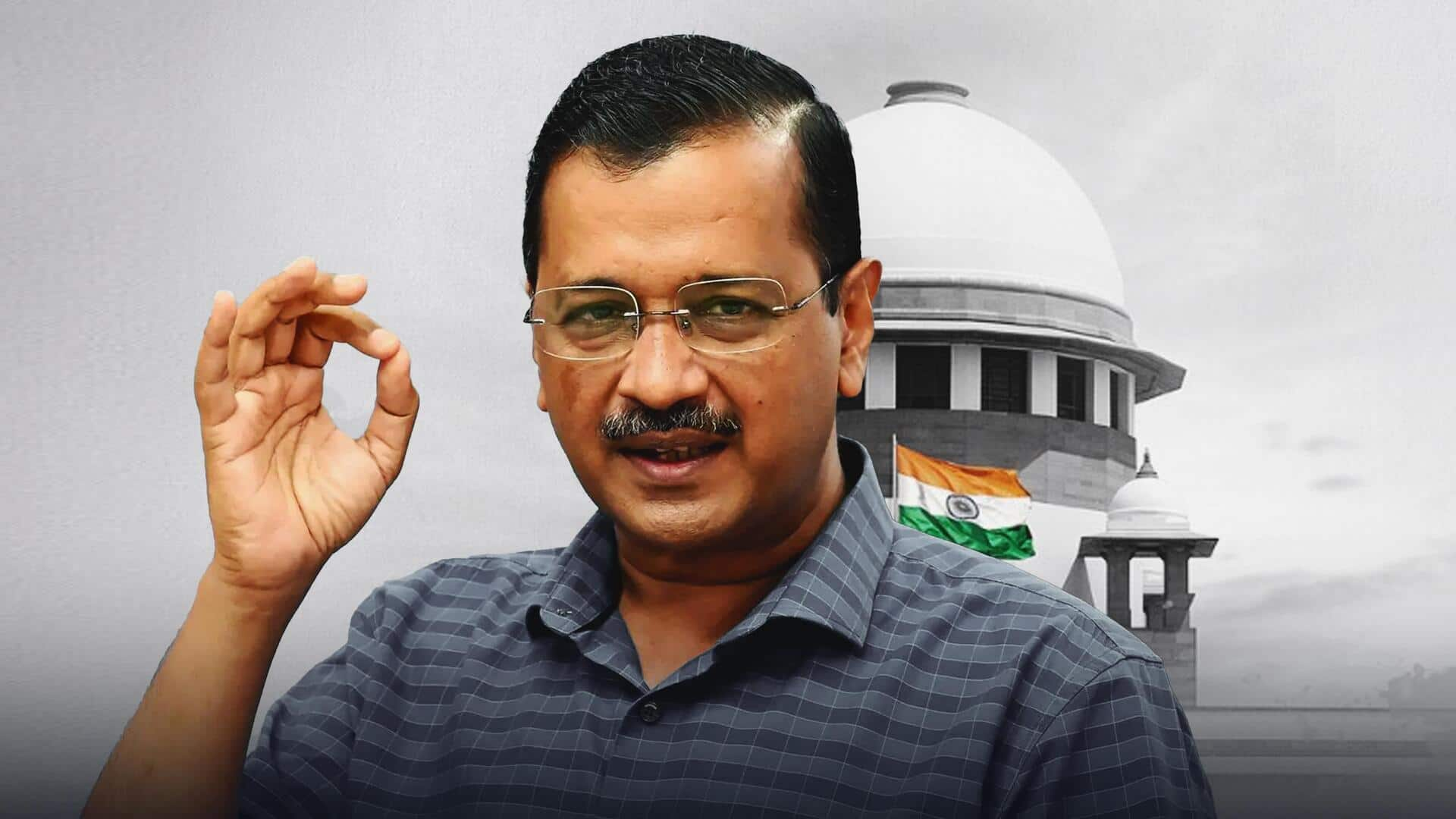
SC grants Arvind Kejriwal interim bail till June 1
What's the story
The Supreme Court granted Delhi Chief Minister Arvind Kejriwal interim bail till June 1—nearly two months after his arrest by the Enforcement Directorate in the excise policy case. On June 2, Kejriwal will have to surrender and go back to jail. A bench—comprising Justices Sanjiv Khanna and Dipankar Datta—announced the verdict on Friday after reserving it on May 7. His release will now allow him to campaign for the Lok Sabha elections in Delhi, to be held on May 25.
Context
Why does this story matter?
The ED arrested Kejriwal on March 21 in connection with a money laundering probe linked to the now-scrapped Delhi excise policy. The case revolves around alleged irregularities in the policy's creation and execution. The agency has alleged that the Aam Aadmi Party is a significant beneficiary of the illicit funds generated from the "scam." It also alleged that the money was funneled into the party's poll campaign for Goa and Punjab. Kejriwal, however, has disputed his arrest as "illegal."
Opposition
ED opposes Kejriwal's petition for interim bail
On Thursday, the ED submitted an affidavit in the Supreme Court opposing Kejriwal's petition for bail to campaign in the Lok Sabha elections. The agency argued that laws apply equally to everyone and that campaigning for Lok Sabha polls is not a fundamental, constitutional or even a legal right. The ED warned that allowing Kejriwal to leave jail for campaigning could set a dangerous precedent, emphasizing that no political leader has ever been granted bail for campaigning.
Bail conditions
Can't perform official duties: SC statement on Tuesday
On Tuesday, the bench said if it decides to release the AAP chief, "we are very clear that we don't want you to be performing official duties since it may have a cascading effect." "We do not want interference at all in the work of the government. It's your wish that you want to continue as chief minister. Today, it is not a question of legality but propriety," the bench added.
Court support
Delhi High Court upheld Kejriwal's arrest
To recall, the Delhi High Court upheld Kejriwal's arrest on April 9, stating there was no illegality and that the probe agency had "little option" after he failed to respond to repeated summonses. The court noted that Kejriwal refused to participate in the investigation related to alleged irregularities in excise policy. Earlier this week, a Delhi court extended Kejriwal's judicial custody in the money laundering case until May 20.
Background
What is the excise policy case
In November 2021, the Delhi government introduced the excise policy for 2021-22. However, less than a year later, it opted to abandon it following widespread corruption accusations. Central investigation agencies asserted that wholesaler profit margins were artificially inflated to 12% from 5%, promoting cartelization and benefiting ineligible license holders. The Kejriwal-led Delhi administration had refuted the allegations, arguing that the policy would have boosted revenue.